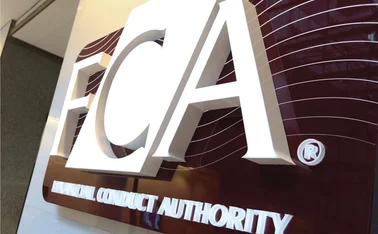
Blog: Learner drivers on motorways can help cut motor insurance premiums

Need to know
- Newly qualified drivers are over-represented in fatal and serious crashes
- Learner drivers have been allowed on motorways since early June
- Motorists with more experience and confidence drive more salefy, which should reduce accident rates
Allowing learner drivers on motorways could increase road safety and reduce motor premiums, writes Alan Inskip, CEO of Tempcover.
In an industry built on and driven by risk, young drivers represent the biggest risk and reward area of the car insurance world. From an insurer’s perspective, drivers aged between 17 and 19 years old provide the biggest premiums of all age groups, but also hold the potential to cost the company big.
One in five drivers are expected to have an accident in their first year of driving and despite making up just over 1% of driving licence holders, newly qualified drivers are involved in 9% of all fatal and serious crashes in the UK.
It’s these staggering statistics, as well as years of experience, that make insurance providers increase the premiums of younger drivers to recoup the costs and payouts that inexperienced drivers, although not exclusively, cost them.
These accident rates cause premiums to increase, which also increases the number of drivers who can’t afford to pay for insurance and decide to illegally drive uninsured. This again ends up costing the insurers, which unsurprisingly causes insurance premiums to increase – and the vicious cycle, where nobody truly wins, continues.
It’s a situation with no quick or easy answers coming from either side, but there could be a glimmer of hope thanks to recent government changes to the rules around driving lessons.
Since the beginning of June, learner drivers have been able to drive on motorways during lessons, as long as they are under the supervision of a registered driving instructor in a dual control car.
The reaction to the decision has been mixed, some drivers becoming mildly annoyed at the prospect of being stuck behind a learner on another stretch of road, while the majority have seen it as a hugely sensible measure that could have long-lasting impacts on road safety.
One of the most obvious reasons for the high accident rate among young drivers is their lack of experience behind the wheel. This impacts their confidence while driving and their ability to make decisions when faced with difficult or new situations on the road.
In the previous setting, 97% of new drivers decided not to take motorway driving lessons after the test. This meant that the majority didn’t have any experience of a motorway the first time they used one.
With these new rules, learners will experience a wider variety of driving environments before taking their test, and they will be exposed to the main arterial routes of the UK.
This extra experience will increase their confidence and ability to make decisions quicker, having had to make them at high speeds and in potentially dangerous situations. Over time, this will help to create more experienced, confident and all-round safer drivers.
Creating noticeably safer drivers will have a knock-on effect on accident rates, which insurers will have to take notice of. It may not fix the cost of insurance for young drivers overnight, but it’s one of the most important and practical moves made in recent years to properly tackle the soaring costs of car cover.
Further reading
Only users who have a paid subscription or are part of a corporate subscription are able to print or copy content.
To access these options, along with all other subscription benefits, please contact info@postonline.co.uk or view our subscription options here: http://subscriptions.postonline.co.uk/subscribe
You are currently unable to print this content. Please contact info@postonline.co.uk to find out more.
You are currently unable to copy this content. Please contact info@postonline.co.uk to find out more.
Copyright Infopro Digital Limited. All rights reserved.
As outlined in our terms and conditions, https://www.infopro-digital.com/terms-and-conditions/subscriptions/ (point 2.4), printing is limited to a single copy.
If you would like to purchase additional rights please email info@postonline.co.uk
Copyright Infopro Digital Limited. All rights reserved.
You may share this content using our article tools. As outlined in our terms and conditions, https://www.infopro-digital.com/terms-and-conditions/subscriptions/ (clause 2.4), an Authorised User may only make one copy of the materials for their own personal use. You must also comply with the restrictions in clause 2.5.
If you would like to purchase additional rights please email info@postonline.co.uk








